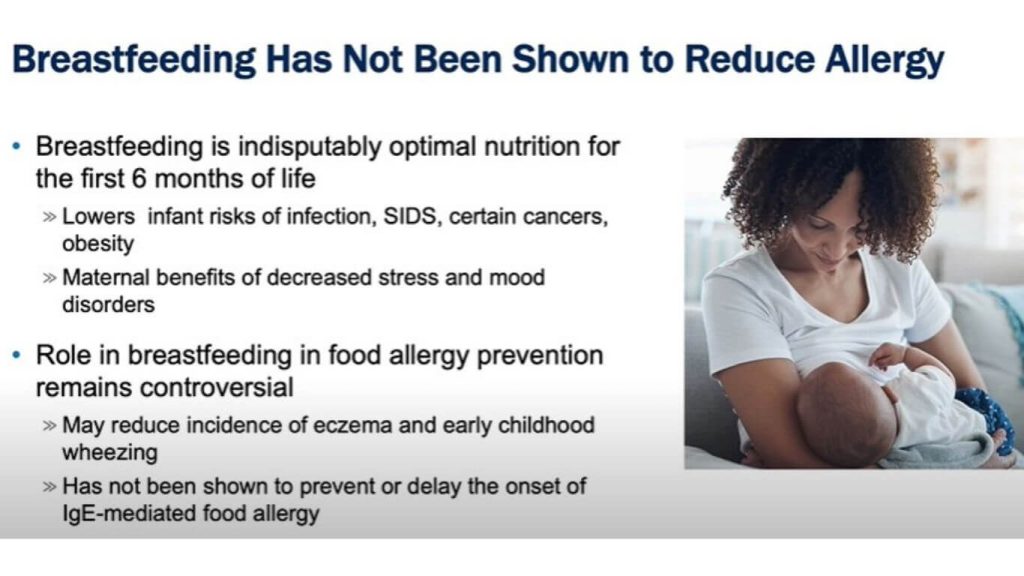As an Amazon Associate ,I earn from qualifying purchase .
Allergies have become increasingly common in today’s world, impacting millions of individuals. They manifest in various ways, leading to symptoms that can significantly affect one’s quality of life. Understanding how to manage allergies through diet and lifestyle choices is crucial for many people. This article explores the intricacies of allergies, their causes, symptoms, and most importantly, provides a comprehensive anti-allergy diet plan to help alleviate these pesky conditions.
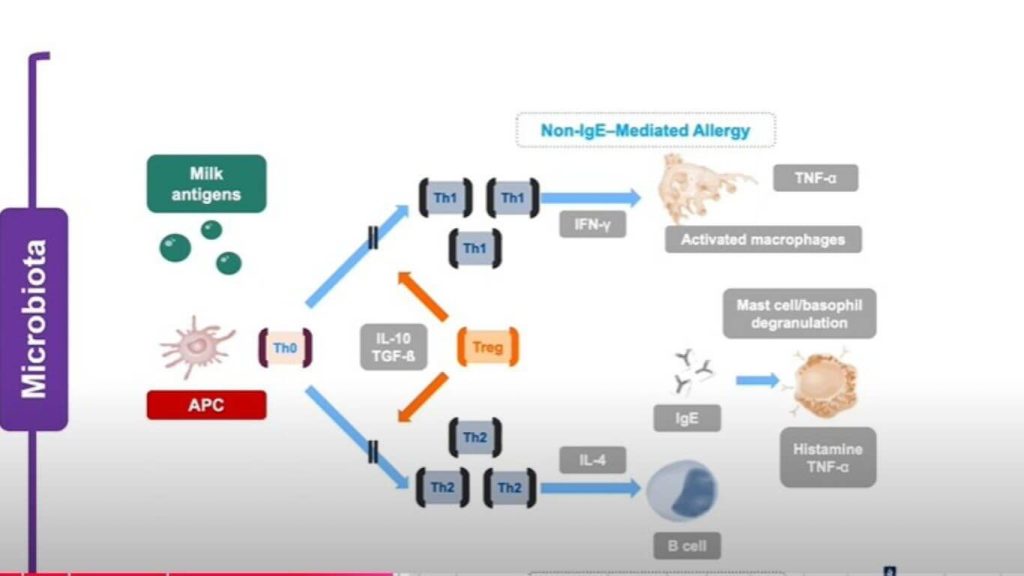
Understanding Allergies: Causes and Symptoms
Allergies occur when the immune system reacts to a foreign substance, known as an allergen, which is typically harmless to most people. Common allergens include pollen, dust mites, pet dander, certain foods, and insect stings. Identifying the specific allergen is crucial for effective management.
Common Allergy Symptoms
The symptoms of allergies can vary significantly depending on the type of allergen involved. Here are some common symptoms to look out for:
- Respiratory Symptoms: These include sneezing, runny or congested nose, coughing, and difficulty breathing. Allergies can indeed cause a cough as the body reacts to irritants.
- Skin Reactions: Rashes, hives, and eczema are common skin-related allergy symptoms. These can be particularly troublesome, leading to discomfort and self-consciousness.
- Gastrointestinal Issues: Some individuals may experience nausea, vomiting, or diarrhea after consuming allergenic foods, raising the question of what causes my fruit allergy or any other food allergies.
- Other Symptoms: Allergies can lead to fatigue, headaches, and in severe cases, anaphylaxis, a life-threatening reaction that requires immediate medical attention.
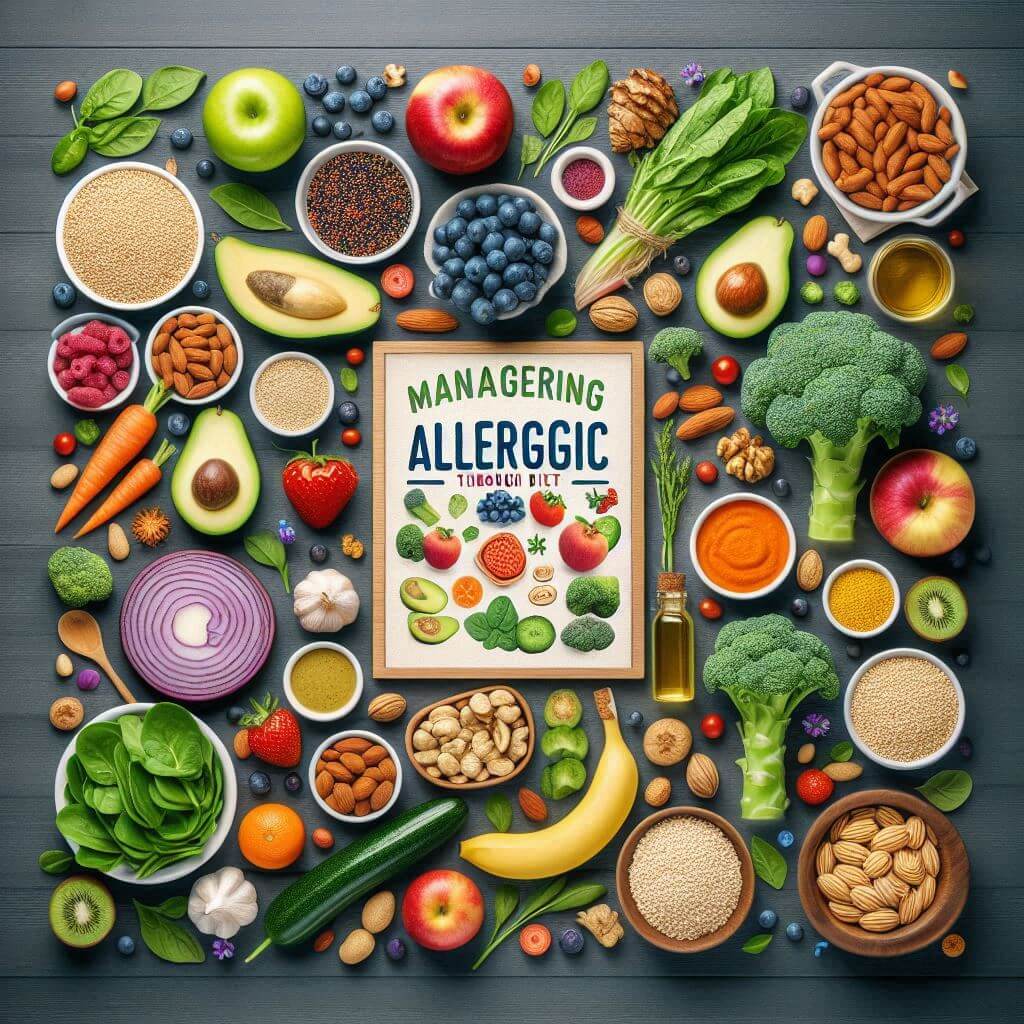
Food Allergies: A Growing Concern
Food allergies, in particular, have seen a dramatic rise in prevalence. Recent reports of serious incidents, such as food allergy-related deaths at places like Disney World, underscore the importance of awareness and management. It’s essential for individuals with food allergies to know their triggers, undergo proper food allergy testing, and understand how to avoid allergens effectively.
Common Food Allergens
The following foods are responsible for the majority of allergic reactions:
- Peanuts: A common allergen that can cause severe reactions, even in small quantities.
- Tree Nuts: Similar to peanuts, tree nuts such as almonds, walnuts, and cashews can trigger allergies.
- Dairy: Cow’s milk is a frequent allergen, especially among children.
- Eggs: Egg allergies are common in children but can persist into adulthood.
- Wheat: This includes wheat proteins like gluten, which can cause celiac disease or wheat allergies.
- Soy: Found in many processed foods, soy can be a hidden allergen.
- Fish and Shellfish: These are among the most common food allergens and can lead to severe reactions.
How Allergies Affect the Body
Allergies can provoke an overactive immune response, leading to inflammation and other health issues. The question, “Can allergies cause fever?” often arises; while allergies typically do not cause fever, they can lead to sinus infections or other complications that may result in fever-like symptoms.
The Role of an Anti-Allergy Diet Plan
Managing allergies often requires lifestyle changes, and diet plays a significant role. An anti-allergy diet plan can help reduce the frequency and severity of allergic reactions. This plan focuses on eliminating common allergens and incorporating foods that support the immune system.
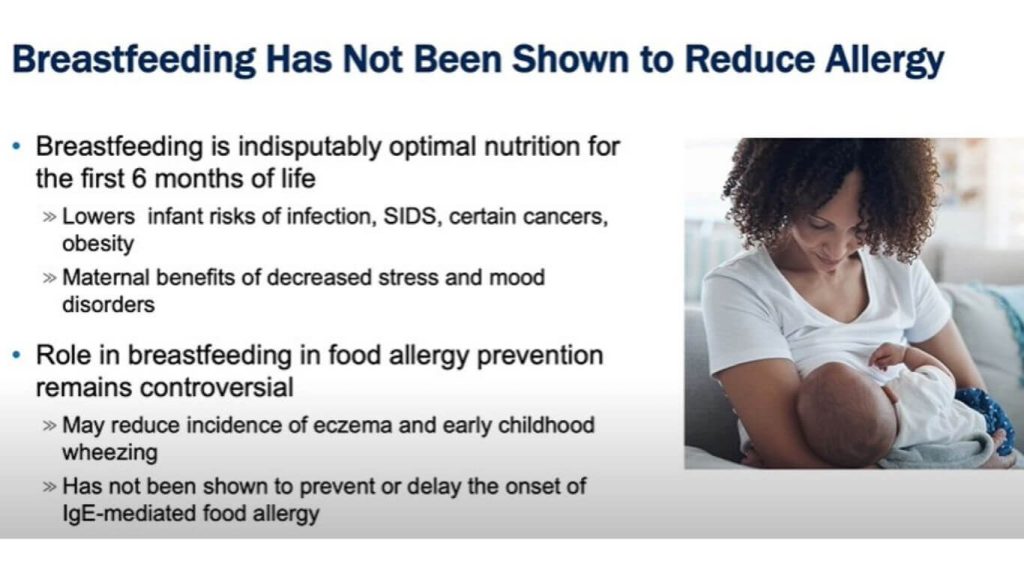
Key Components of an Anti-Allergy Diet Plan
- Identify and Eliminate Trigger Foods: Begin by identifying foods that trigger your allergies. Keep a food diary to track your intake and symptoms. Once identified, eliminate these foods from your diet.
- Focus on Whole Foods: Whole, unprocessed foods are less likely to contain hidden allergens. Incorporate plenty of fruits, vegetables, whole grains, and lean proteins.
- Increase Anti-Inflammatory Foods: Foods rich in omega-3 fatty acids, such as fatty fish, flaxseeds, and walnuts, can help reduce inflammation. Additionally, spices like turmeric and ginger have anti-inflammatory properties.
- Stay Hydrated: Drinking plenty of water helps to thin mucus and can alleviate allergy symptoms. Herbal teas, particularly those with anti-inflammatory properties, can also be beneficial.
- Consider Food Intolerances: Some people may experience food intolerances that mimic allergy symptoms. Common intolerances include gluten and lactose. An elimination diet can help identify these issues.
Sample Anti-Allergy Diet Plan
Here’s a simple one-week anti-allergy diet plan to get you started:
Day 1:
- Breakfast: Oatmeal topped with blueberries and chia seeds.
- Lunch: Quinoa salad with spinach, cucumber, and olive oil dressing.
- Snack: Sliced apple with almond butter (if nut allergy is not present).
- Dinner: Grilled chicken breast with steamed broccoli and sweet potato.
Day 2:
- Breakfast: Smoothie with spinach, banana, and almond milk (if nut allergy is not present).
- Lunch: Lentil soup with a side of mixed greens.
- Snack: Carrot sticks with hummus.
- Dinner: Baked salmon with asparagus and brown rice.
Day 3:
- Breakfast: Rice cakes topped with avocado and tomato.
- Lunch: Chicken stir-fry with bell peppers and broccoli over brown rice.
- Snack: Celery sticks with sunbutter (sunflower seed butter).
- Dinner: Turkey burgers (no bun) with roasted vegetables.
Day 4:
- Breakfast: Chia seed pudding made with coconut milk.
- Lunch: Chickpea salad with cherry tomatoes and parsley.
- Snack: Cucumber slices with guacamole.
- Dinner: Beef stir-fry with snap peas and quinoa.
Day 5:
- Breakfast: Smoothie with kale, pear, and coconut water.
- Lunch: Zucchini noodles with marinara sauce and grilled chicken.
- Snack: Rice crackers with homemade pesto.
- Dinner: Baked cod with green beans and quinoa.
Day 6:
- Breakfast: Buckwheat pancakes topped with fresh strawberries.
- Lunch: Vegetable soup with a side of whole-grain toast.
- Snack: Mixed berries.
- Dinner: Grilled shrimp with vegetable skewers and brown rice.
Day 7:
- Breakfast: Scrambled eggs with spinach and tomatoes (if egg allergy is not present).
- Lunch: Quinoa bowl with black beans, corn, and avocado.
- Snack: Popcorn (without butter).
- Dinner: Roasted chicken with carrots and sweet potatoes.
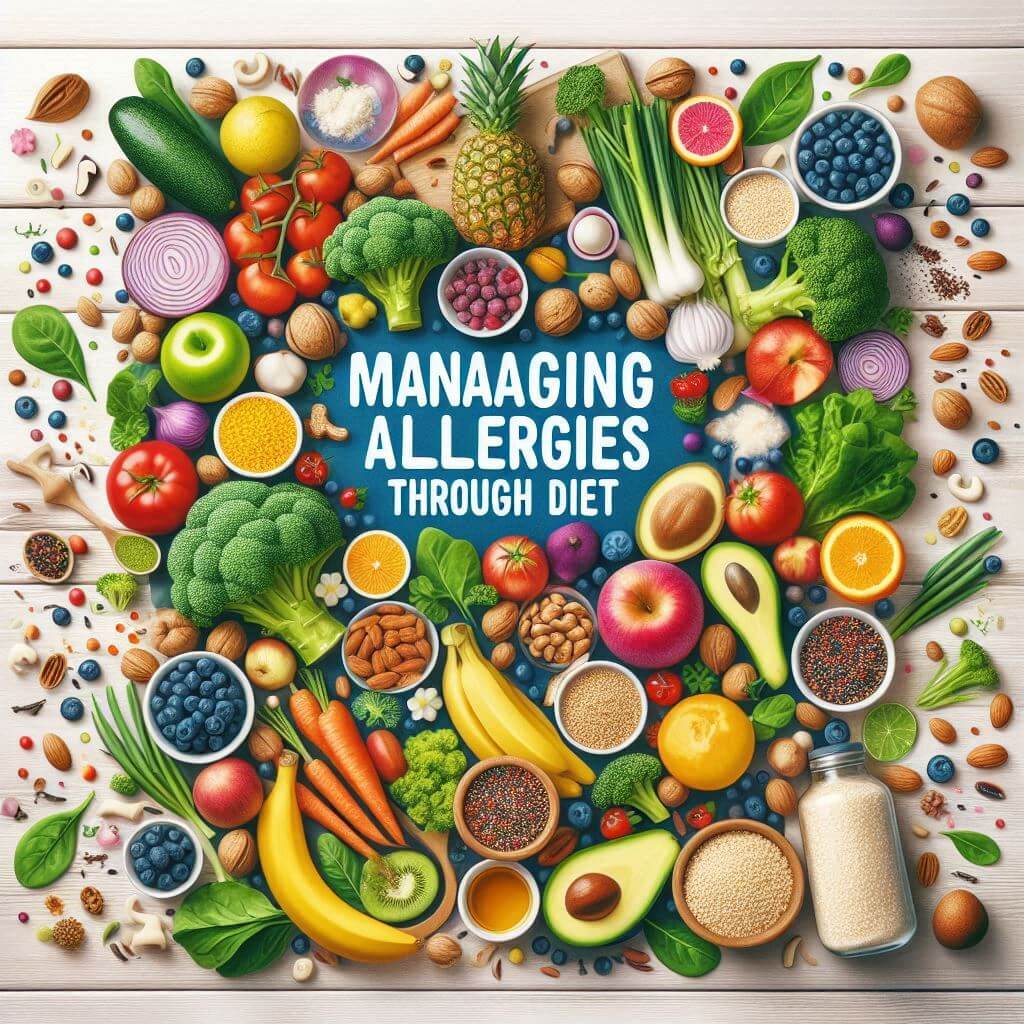
Additional Lifestyle Tips for Allergy Management
In addition to following an anti-allergy diet plan, there are other strategies to manage allergies effectively:
1. Allergen Avoidance
- Limit exposure to known allergens. For example, if you have a dust allergy, maintain a clean environment, use air purifiers, and avoid carpets where dust can accumulate.
2. Regular Cleaning
- Frequent cleaning can help reduce dust and allergens in your home. Use a vacuum with a HEPA filter and wash bedding in hot water weekly.
3. Wear Protective Gear
- If you’re exposed to allergens like pollen or dust, wearing masks can provide a barrier. Sunglasses can also protect your eyes from pollen exposure.
4. Consult Healthcare Professionals
- Regular consultations with healthcare providers can help manage allergies effectively. They may recommend medications such as antihistamines, nasal sprays, or allergy shots based on your specific needs.
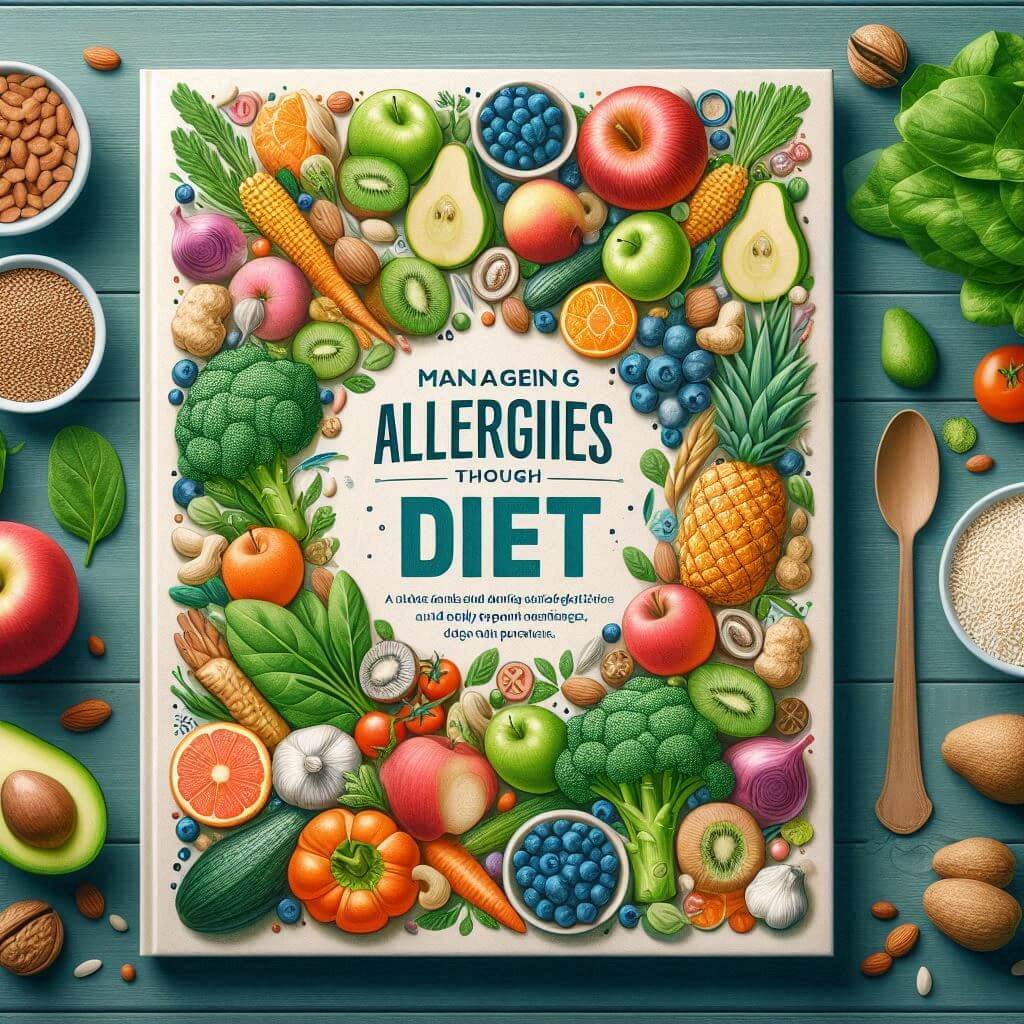
Conclusion
Managing allergies can be challenging, but with the right approach, it is possible to reduce symptoms significantly. An anti-allergy diet plan that focuses on eliminating allergens while incorporating nourishing foods can make a substantial difference. Remember to identify your specific triggers, follow a balanced diet, and make lifestyle adjustments to create a more comfortable living environment. By taking these steps, you can regain control over your allergies and improve your overall quality of life.
This article serves as a comprehensive guide to understanding and managing allergies effectively through dietary changes and lifestyle modifications. If you suspect you have allergies, consult with a healthcare professional for personalized advice and testing.

